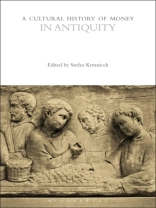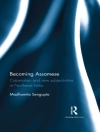The origins of the modern, Western concept of money can be traced back to the earliest electrum coins that were produced in Asia Minor in the seventh century BCE. While other forms of currency (shells, jewelry, silver ingots) were in widespread use long before this, the introduction of coinage aided and accelerated momentous economic, political, and social developments such as long-distance trade, wealth creation (and the social differentiation that followed from that), and the financing of military and political power. Coinage, though adopted inconsistently across different ancient societies, became a significant marker of identity and became embedded in practices of religion and superstition. And this period also witnessed the emergence of the problems of money – inflation, monetary instability, and the breakup of monetary unions – which have surfaced repeatedly in succeeding centuries. Drawing upon a wealth of visual and textual sources, A Cultural History of Money in Antiquity presents essays that examine key cultural case studies of the period on the themes of technologies, ideas, ritual and religion, the everyday, art and representation, interpretation, and the issues of the age.
Krmnicek Stefan Krmnicek
Cultural History of Money in Antiquity [PDF ebook]
Cultural History of Money in Antiquity [PDF ebook]
Cumpărați această carte electronică și primiți încă 1 GRATUIT!
Limba Engleză ● Format PDF ● Pagini 216 ● ISBN 9781350253384 ● Editor Krmnicek Stefan Krmnicek ● Editura Bloomsbury Publishing ● Publicat 2021 ● Descărcabil 3 ori ● Valută EUR ● ID 8115681 ● Protecție împotriva copiilor Adobe DRM
Necesită un cititor de ebook capabil de DRM












